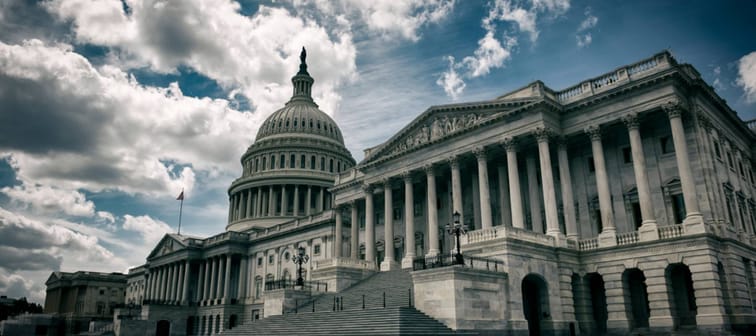Prepare for reduced benefits
Social Security and Medicare are major components of the federal budget.
But if the federal deficit continues to grow, it's possible that policymakers may consider reducing benefits or making other changes to the programs. The Social Security Trust Fund is projected to be depleted by 2034, which could lead to a 24% reduction in benefits if no action is taken to address the shortfall.
To soften the blow of any future benefit cuts, individuals can contribute more to their retirement savings now. This includes options such as increasing contributions to a 401(k) or IRA. By doing so, individuals can build a larger retirement nest egg that can provide an additional source of income in retirement.
Opening a Health Savings Account (HSA) can also provide a financial cushion for future medical expenses. HSAs are tax-advantaged accounts that let individuals save pre-tax dollars to pay for qualified medical expenses. Any unused funds in the account roll over from year to year and can continue to grow tax-free, providing a potential source of funds for future medical expenses.
Invest in real estate without the headache of being a landlord
Imagine owning a portfolio of thousands of well-managed single family rentals or a collection of cutting-edge industrial warehouses. You can now gain access to a $1B portfolio of income-producing real estate assets designed to deliver long-term growth from the comforts of your couch.
The best part? You don’t have to be a millionaire and can start investing in minutes.
Learn MorePrepare for higher interest rates
Paying down debt can be a smart financial decision, especially during times of economic uncertainty. Studies have shown that reducing personal debt can help to minimize financial risk and increase financial stability.
One study by the National Bureau of Economic Research found that households with higher levels of debt are more likely to experience financial distress during times of economic hardship.
By paying off debt, you can free up their monthly expenses and have more disposable income to invest in their retirement plans or emergency funds. This can provide a safety net during times of financial uncertainty.
Make sure to prioritize high-interest debt first. They can become even more burdensome if interest rates rise. Refinancing loans at lower rates or consolidating debts can also help to make payment schedules more manageable.
Look to alternative investments
Diversifying your investments can be an effective strategy to mitigate risks in case of a potential financial crisis. By investing in different types of assets, you spread out your risk and reduce the impact of market volatility.
Gold, for example, is a classic way to diversify your investments, as it is not necessarily tied to stock market movements. Its physical form and finite supply make it a valuable asset that can be held outside of the banking system. This provides a buffer against inflation, making it a popular choice for investors who are seeking to hedge market turmoil.
Real estate is another popular alternative investment that is seen as relatively recession-proof. It has historically provided healthy appreciation in value, whether you invest in commercial real estate, residential properties, or a primary residence.
Prime commercial real estate, in particular, has outperformed the S&P 500 over a 25-year period, making it an attractive option for investors seeking stable returns.
The richest 1% use an advisor. Do you?
Wealthy people know that having money is not the same as being good with money. Advisor.com can help you shape your financial future and connect with expert guidance . A trusted advisor helps you make smart choices about investments, retirement savings, and tax planning.
Try it now







